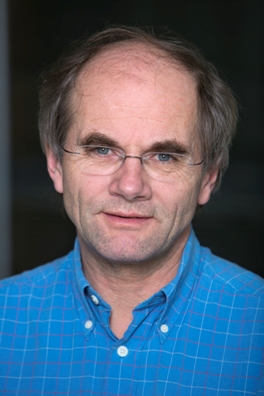Alumni Spotlight: Olav Gjelsvik
Often, the relevance and importance of research carried out today reveals itself in decades from now.
´In for instance mathematics, one can see important applications 50 or 100 years after some work is done´, Olav Gjelsvik says, a philosophy professor at the University of Oslo.
He is one of the drivers behind the development of the acknowledged philosophy department at the university, and led the CAS project Towards a New Understanding of the Mental 16-17 years ago.
Now that his department is facing existential challenges, we wanted to talk with him about how such an environment was developed, and about the importance of facilitating for fundamental research.
Made Oslo intellectually attractive
There is no straight forward answer to why philosophy in Oslo ranked #25 in the world by QS World University Ranking in 2019, Gjelsvik says.
´The fundamental point is that we managed to make it intellectually attractive to come to Oslo.´

In addition to “identifying the right people around the world”, and “pull all kinds of strings in the various communities” to make sure that they will want to move to Oslo, Gjelsvik points at having a sizable group in place with doctorates from prestigious universities such as Oxford, Harvard and Berkley, and the expanded networks that come with that, as an important factor.
Likewise, it is necessary with an effective policy for the afterlife of a Centre of Excellence (SFF), Gjelsvik argues, who himself led the Centre for the Study of Mind in Nature from 2010 to its closing in 2017.
Developing such an internationally renowned philosophy environment has been a strategic, long term, and difficult process, he tells:
´And CAS was one of many important steps on the way.´
A long term perspective
Why is it important to finance fundamental research?
“Basic research needs generous funding. Very often the importance of research and relevance for applications of research contributions cannot be seen at the time the research is carried out, and therefore not by a funding body, research council or the likes of them. Funding bodies should therefore look at quality alone when they make their decisions, that is the best way to secure the long term benefits.
Most evaluations of funding bodies underline that they have been too focused on relevance within a short term perspective. In for instance mathematics, one can see important applications 50 or 100 years after some work is done. There is an increasing dominance of a short term perspective with for example Research Council Norway, this makes institutions like CAS much more important.”
In your view, what is a successful year at CAS, and what can it contribute with?
“A year at CAS brings together people dedicated to a range of question inside their area, and makes room for concentration, deep exchanges, cooperation and development. Just as important as providing time to finish ongoing research, a year at CAS build friendships, networks, generates new questions and new understandings, opens up for new ways of looking at things, new projects, new connections. A year at CAS also brings interactions with the other groups at CAS that year, and this can be very fruitful. Working in the atmosphere of CAS can be an extremely valuable experience in itself.
In our case it also functioned as preparatory groundwork for a centre of excellence a few years later. In this centre many of the people were included, and also some researchers from other CAS groups at the same time, or the year after us.”
What did you research while at CAS, and what did you find out?
“Our project was a philosophical project entitled Towards a New Understanding of the Mental. It came together as the philosophy of mind broadly construed was at the cusp of a major development, to a large extent as a result of developments in the philosophy of language and the philosophy of action the last 30 years of the 20th century. The broad theme was how the interactions with external world should matter for how we understood the very nature of the mind. We brought together a team of scholars from Oslo, Trondheim and Tromsø, and also four very distinguished philosophers who were contributing to the topic in a major way, one from Paris, one from Oxford, one from Stanford, one from London. Everybody influenced everybody, new friendships were made.
A highlight was a conference for everybody at Røros Hotel, coinciding with the winter music festival there. We worked throughout the day, and always had a wonderful concert experience before dinner.“
- This interview was first published in our May newsletter. Sign up here